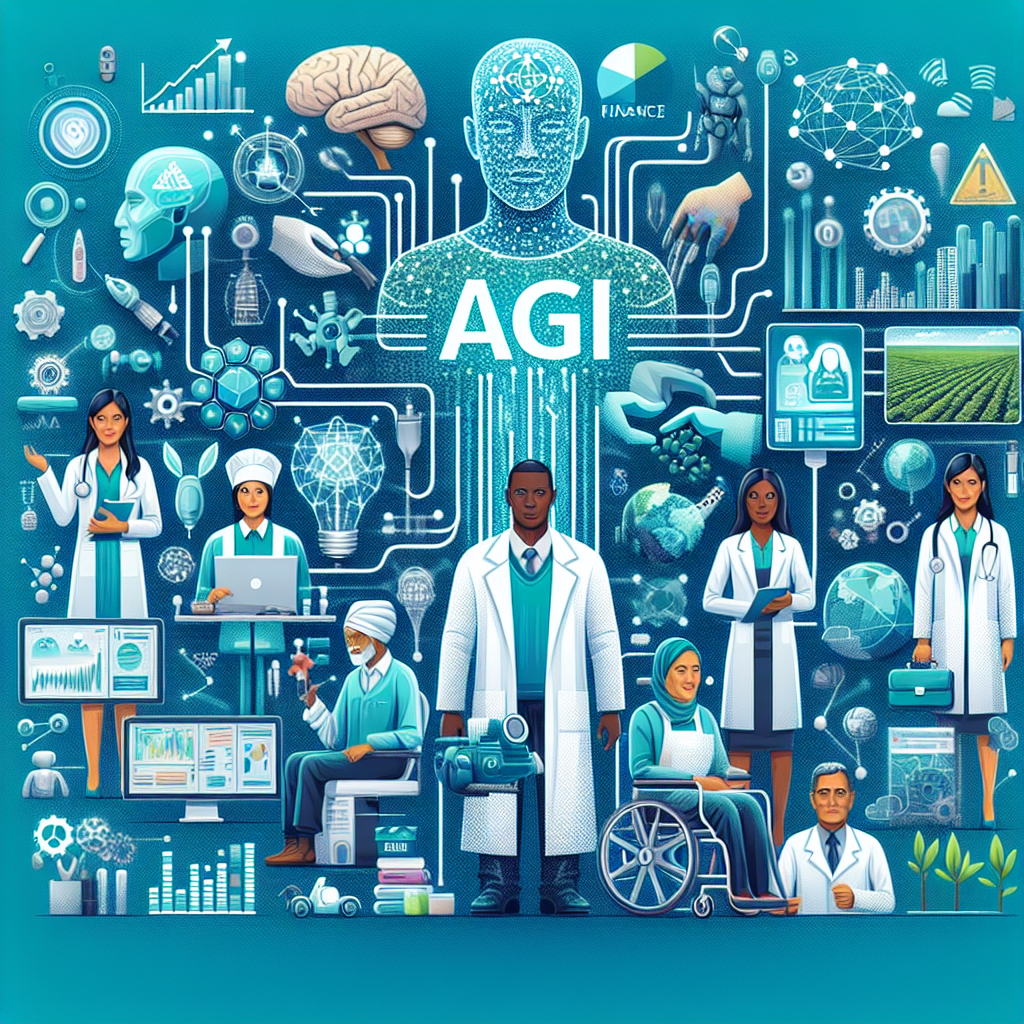Artificial General Intelligence (AGI) is an emerging field of research that aims to create machines capable of performing any intellectual task that a human can. While current AI technologies are capable of performing specific tasks within narrow domains, AGI seeks to create machines that can understand and learn from any type of information, just like a human can.
The potential impact of AGI on industries and society is immense. From healthcare to finance, transportation to education, AGI has the potential to revolutionize the way we work, live, and interact with the world around us. In this article, we will explore the future of AGI and how it will transform industries and society.
AGI in Healthcare
One of the most promising applications of AGI is in healthcare. With the ability to analyze vast amounts of medical data, AGI can help doctors diagnose diseases more accurately and develop personalized treatment plans for patients. AGI can also help identify new drug targets and predict patient outcomes, leading to more effective and efficient healthcare delivery.
In addition, AGI can revolutionize the field of telemedicine by enabling remote diagnostics and treatments. Patients in rural or underserved areas can access high-quality healthcare services without having to travel long distances. This can help reduce healthcare disparities and improve overall health outcomes for populations around the world.
AGI in Finance
The financial industry is another area that stands to benefit from the advancements in AGI. With the ability to analyze vast amounts of financial data in real-time, AGI can help identify patterns and trends that human analysts may miss. This can lead to more accurate predictions of market movements and better investment decisions.
AGI can also help automate routine financial tasks, such as risk assessment, fraud detection, and portfolio management. This can free up human analysts to focus on more strategic tasks, such as developing new investment strategies and building relationships with clients.
AGI in Transportation
The transportation industry is undergoing a transformation with the advent of autonomous vehicles powered by AGI. Self-driving cars and trucks equipped with AGI technology can navigate roads more safely and efficiently than human drivers. This can help reduce accidents, traffic congestion, and emissions, leading to a cleaner and more sustainable transportation system.
AGI can also revolutionize the logistics industry by optimizing supply chain management and route planning. With the ability to analyze real-time data on traffic conditions, weather patterns, and fuel prices, AGI can help companies reduce costs and improve delivery times.
AGI in Education
In the field of education, AGI has the potential to personalize learning experiences for students. By analyzing individual learning styles and preferences, AGI can create customized lesson plans and assessments that cater to each student’s needs. This can help improve student engagement, retention, and academic performance.
AGI can also assist teachers in grading assignments, providing feedback, and identifying areas where students may need additional support. This can help reduce the administrative burden on teachers and enable them to focus on mentoring and coaching students.
FAQs
Q: What is the difference between AGI and narrow AI?
A: Narrow AI refers to machines that are designed to perform specific tasks within a limited domain, such as image recognition or language translation. AGI, on the other hand, aims to create machines that can perform any intellectual task that a human can.
Q: When will AGI be available?
A: It is difficult to predict exactly when AGI will be available, as it is still a nascent field of research. Some experts believe that AGI could be achieved within the next few decades, while others believe it may take longer.
Q: What are the ethical implications of AGI?
A: AGI raises ethical concerns related to privacy, bias, and accountability. It is important to ensure that AGI is developed and deployed in a responsible manner, with proper safeguards in place to protect individuals and society as a whole.
Q: Will AGI replace human workers?
A: While AGI has the potential to automate many tasks currently performed by humans, it is unlikely to replace human workers entirely. Instead, AGI is likely to complement human workers by augmenting their abilities and enabling them to focus on more strategic and creative tasks.
In conclusion, the future of AGI holds great promise for transforming industries and society in profound ways. From healthcare to finance, transportation to education, AGI has the potential to revolutionize the way we work, live, and interact with the world around us. As researchers continue to make advancements in this field, it is important to consider the ethical implications and ensure that AGI is developed and deployed in a responsible manner.

